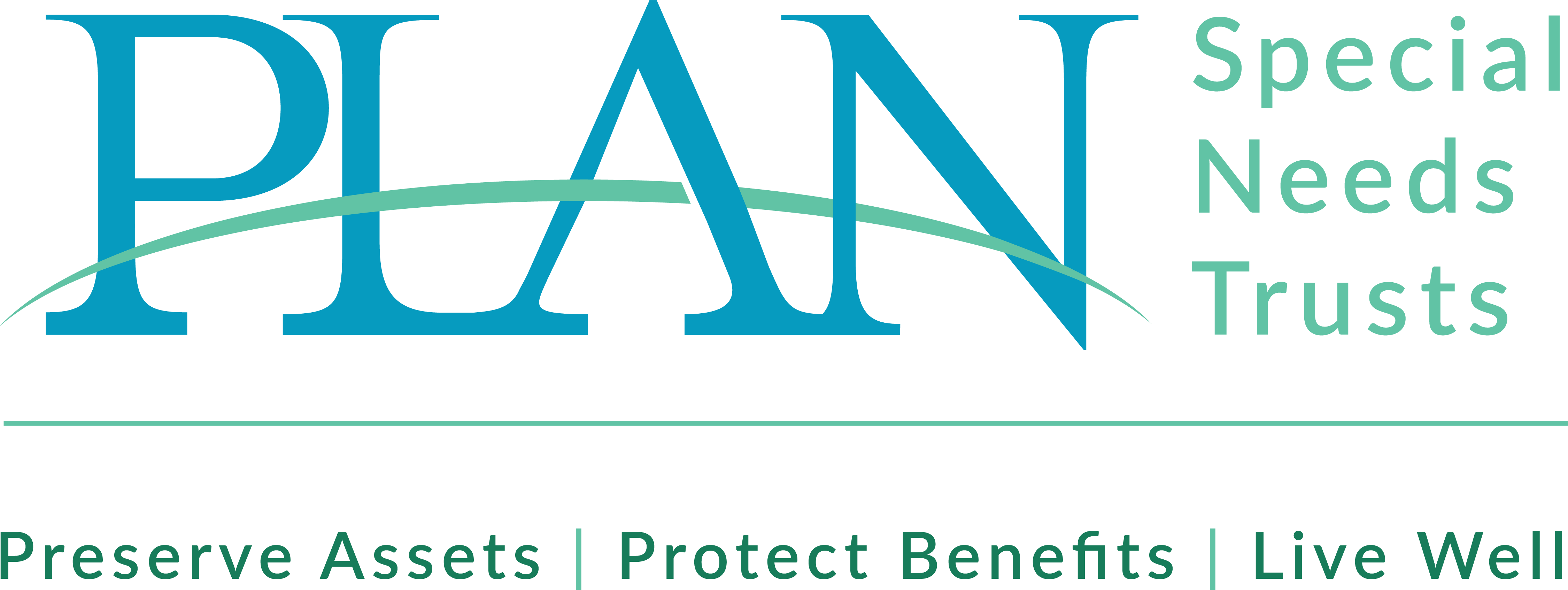Special Needs Trusts: Not Just for Long-Term Care
Date posted: December 16, 2020By: Kathy Vitello, Director of Operations, Planned Lifetime Assistance Network of Massachusetts and Rhode Island, Inc. (“PLAN”)
The ability to keep vulnerable loved ones at home with supports for as long as they are safe has been a viable option for some time in Massachusetts. M.G.L. c. 111, s. 2 states, “A person seeking admission to a long-term care facility paid for by MassHealth shall receive pre-admission counseling for long-term care services, which shall include an assessment of community-based service options.”
For persons with limited financial resources, Medicaid (known as MassHealth in Massachusetts) pays for nursing facility care. For those who wish to live at home or in assisted living, sometimes Medicaid will pay for care in those locations if it can be obtained at a lower cost than in a nursing facility. It does this through state-specific “Medicaid Waivers,” which are also called Home and Community Based Services (HCBS) Waivers or Waiver Funded Services.
The Frail Elder Waiver (FEW), is a MassHealth program providing frail elders, aged 60 and older, access to health care and ongoing support services in their homes or community residences instead of in nursing homes. The FEW is operated by the Massachusetts Executive Office of Elder Affairs (EOEA). A case manager helps develop a comprehensive service plan and can address specific issues such as Alzheimer’s/Dementia Coaching and Home Safety/Independence Evaluations. Elders enrolled in FEW can also join another health plan, such as a SCO. More information can be found at https://www.mass.gov/frail-elder-waiver-few.
The PACE program provides comprehensive medical and social services to certain frail, elderly participants living in the community. Most PACE participants are dually eligible for Medicare and Medicaid. For a more comprehensive list of what PACE covers, visit https://www.medicare.gov/your-medicare-costs/get-help-paying-costs/pace.
Senior Care Options (SCO) is a MassHealth program for seniors dually eligible for Medicare and Medicaid (as well as Medicaid only) that provides comprehensive, medically necessary health care services and social support services through a single health plan designed specifically for seniors. Certain providers are designated as participating SCO plans. For more information about what SCO covers, visit: https://www.mass.gov/senior-care-options-sco.
Another at home service available to elders is Adult Foster Care (AFC), which enables frail elders to receive help with activities of daily living from a caregiver in a home setting instead of living in a nursing home or another institutional facility. You may see this program in Massachusetts also referred to as Caregiver Homes, Group Adult Family Care (GAFC), or Enhanced Adult Family Care (EAFC). With AFC, eligible family members can be paid as caregivers, including siblings, adult children and other relatives. Spouses, parents of a minor, or legal guardians, however, cannot be paid through AFC.
ASAPs (Aging Services Access Points) are private, non-profit agencies with governing boards that serve and represent 51% of people age 60 and older. The ASAP role to help elders is established under M.G.L. c. 19A. There are (26) ASAPs in Massachusetts and include many elder service agencies who provide homecare, information and referrals and/or direct and protective services. ASAPs also contract with
programs, such as PACE, SCO and AFC, to provide those services directly to eligible elders in their catchment area. This makes ASAPs an efficient first step in determining the options available to an elder. To find a local ASAP, visit: www.800AGEINFO.com.
The US Department of Veteran Affairs allows veterans and their surviving spouses to receive a special benefit called ‘Aid & Attendance.’ This benefit is tax free and provides financial assistance for the cost of long-term care in the home, as well as in an assisted living facility or nursing home.
Many of these state and federal programs designed to keep elders safe and healthy at home have income and asset limits. It is important to note that assets in an SNT do not count against the limits, enabling an elder to be eligible for services in these programs. An SNT can cover eyeglasses, dentures, clothing, household items, personal electronic devices, recreational activities, education and training programs and veterinary bills that are not covered by these public programs. As one example, if the elder is attending a Medicaid adult day health program, the SNT can pay for caregiver transportation to and from the program, and the fee for a caregiver to attend. If the elder does not attend the adult day health program, the trust can pay for a caregiver on those days. SNTs can also pay for prepaid funeral and burial costs prior to death. SNT disbursements can vary, but a general guide to disbursements can be found at https://www.planofma-ri.org/documents/disbursements/.
Planned Lifetime Assistance Network of Massachusetts and Rhode Island, Inc. (“PLAN of MA & RI”) is a 501(c)(3) nonprofit organization that helps people with disabilities maintain their assets while receiving public assistance. PLAN has been in existence for more than 50 years and currently has 750 clients and $60M in assets under management. Acting as trustee for “pooled” SNTs, PLAN provides trust administration services and supporting social services. PLAN helps clients protect their assets within the bounds of existing rules and regulations. PLAN’s licensed and experienced social workers are available to help provide the highest possible quality of life for PLAN participants to supplement public programs and ensure the longevity of public benefits.
PLAN of MA & RI is located at 50 Cabot Street, Needham, or 331 Waterman Street, Suite 158E, Providence, RI, 02906. Call 888-890-7526 or email [email protected].
Special thanks to Pam Greenfield, Esq. for her support and suggestions for this article.

